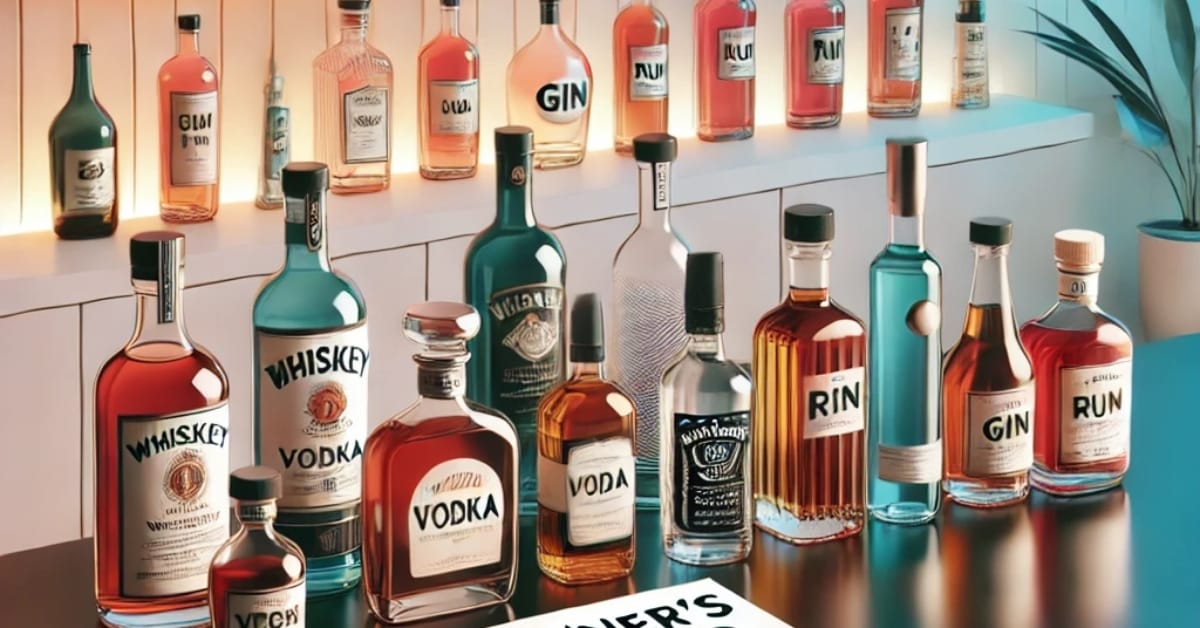Blog
Beginner’s Guide to Liquor: Understanding Types, Tasting & Storage
Beginner’s Guide to Liquor: Your Ultimate Introduction to Spirits
Welcome to the world of liquor! This beginner’s liquor guide will help you understand everything you need to know about spirits. From exploring types of liquor to learning how to taste and store them, this comprehensive guide ensures you start your journey the right way. Let’s dive in!
1. What Is Liquor?
Liquor, also known as spirits, is a distilled alcoholic beverage made from fermenting grains, fruits, or vegetables. The distillation process removes water and concentrates the alcohol, resulting in a stronger drink compared to beer or wine.
2. Types of Liquor
Here are the most popular types of liquor and what makes each unique:
Whisky
Made from: Grains such as wheat, rye, maize, or barley.
Flavor profile: Smoky, woody, or sweet.
Examples: Scotch whisky, Irish whiskey, Bourbon.
Explore our Scotch whisky collection.
Vodka
Made from: Potatoes, grains, or sometimes fruits.
Flavor profile: Clean, neutral taste.
Uses: Often used in cocktails like martinis and Moscow Mules.
Shop our vodka selection here.
Gin
Made from: Grains infused with botanicals, primarily juniper berries.
Flavor profile: Herbal and floral.
Uses: Great for cocktails like gin and tonic or Negroni.
Check out our gin offerings.
Rum
Made from: Sugarcane or molasses.
Flavor profile: Sweet and rich; dark rums often have notes of caramel and spice.
Uses: Classic cocktails like mojitos and piña coladas.
Discover our rum collection.
Tequila
Made from: Blue agave plant.
Flavor profile: Earthy and slightly sweet.
Uses: Margaritas or shots with lime and salt.
Brandy
Made from: Fermented fruit juices or distilled wine.
Flavor profile: Sweet, fruity, and smooth.
Examples: Cognac is a type of brandy.
Explore brandy options on our store.
3. How to Taste Liquor
Tasting liquor is an art! Here are some tips to get started:
Look: Observe the color and clarity of the liquor.
Smell: Swirl the glass gently and take a sniff to detect aromas.
Sip: Allow it to coat your tongue with a little sip.
Savor: Notice the flavors, textures, and finish.
4. How to Store Liquor
Proper storage ensures your liquor remains fresh and flavorful:
Keep bottles upright: This prevents the cork from deteriorating.
Store in a cool, dark place: Keep out of direct sunlight and extremely hot or cold weather.
Seal tightly: Prevent oxidation by ensuring the bottle is properly sealed.
5. Responsible Drinking Tips
Enjoying liquor responsibly is essential:
Know your limits and drink in moderation.
Eat before or while drinking to avoid intoxication.
Stay hydrated by alternating alcohol with water.
Never drink and drive.
Learn about responsible drinking guidelines.
6. Beginner-Friendly Liquors to Try
If you’re just starting, here are some great options:
Vodka: A versatile choice for cocktails.
Rum: Sweet and approachable, especially in mixed drinks.
Whisky: Start with lighter options like Irish whiskey or blended Scotch.
Liqueurs: Sweet and flavorful, great for sipping or mixing.
7. Frequently Asked Questions
What’s the difference between liquor and liqueur?
Liquor is a distilled spirit, while liqueur is a sweetened liquor often infused with flavors.
How is liquor different from beer or wine?
Since liquor is distilled, its alcohol concentration is higher than that of fermented drinks like wine and beer.
What’s the best liquor for beginners?
Vodka and rum are often the easiest to start with due to their mild flavors and versatility.
Conclusion
This beginner’s liquor guide introduces you to the exciting world of spirits. Whether you’re sipping whisky, mixing cocktails with vodka, or enjoying a shot of tequila, understanding the basics enhances your experience. Ready to start your journey?
Shop for your first bottle here.




